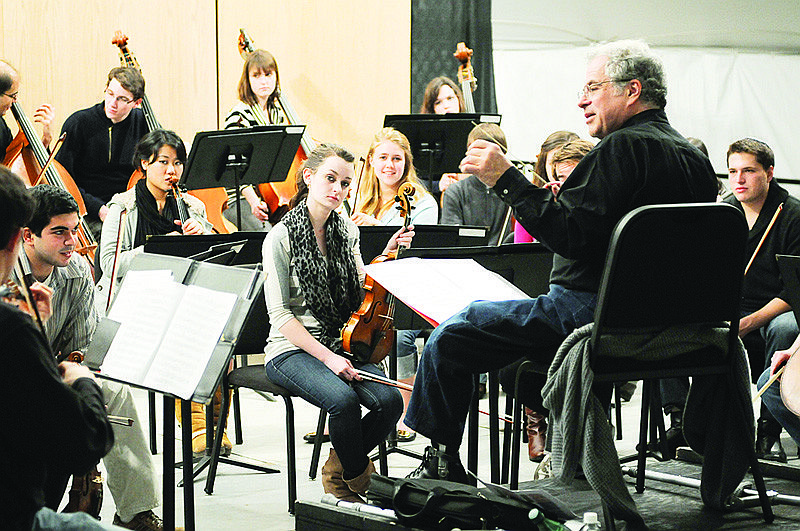- April 17, 2024
-
-
Loading

Loading

Now in its seventh Sarasota season, the Perlman Music Program has taught us what to expect when we attend its Winter Residency Celebration concert, so there were only a few surprises this past Saturday at the Sarasota Opera House — and they were almost all good ones.
Attending one of these performances is like discovering a great video on YouTube. The stage is crammed with some of the most talented string players in the world. The surprise for the uninitiated is that they’re mostly teenagers: focused, brilliant, poised and on the verge of major careers in music.
Their mentors, the violinist and conductor Itzhak Perlman and his insightful-and-inspirational wife, Toby, have a home life that’s been filled with five of their own children. Years ago, in a conversation I had with Toby, she told me the reason they had so many kids is they had so much love to give, and they simply had to spread it among them. This same philosophy seems to prevail in their treatment of the student musicians who participate in the Perlman Music Program.
Itzhak, who has occasionally moonlighted as a baritone in concerts and operas, feels it’s important for instrumentalists to learn to sing. And is he ever right! It’s not so much that they become great singers with beautiful voices, but when instrumentalists sing in an ensemble, like The PMP Chorus, they learn phrasing, breathing, stage deportment and, most importantly, the art of listening to each other. All of this is then translated into their chamber music, orchestral and solo instrumental performances.
So, as in most past years, Saturday’s concert began with chorus master Patrick Romano and The PMP Chorus (including Itzhak and Toby Perlman), using their “original instruments” in singing excerpts from an early Mozart Mass, Mozart’s “Ave Verum Corpus” and a well-known “Coronation” Anthem by Handel.
Was it great singing? No. It was strident, thin and, at times, pushed. But the musical and emotional lessons learned by the singers will pay off manifold in the future, and by keeping the selections short, it was hardly an infliction on the ears of the audience.
After a quick stage change, the musicians returned with their real instruments — violins, violas, cellos and basses — to do what they do best. And did they ever do it! Itzhak dubbed their selections a sort of musical menu, starting with an appetizer of Mozart (three movements from a divertimento), followed by a sandwich of a Perlman-constructed chamber work: the first movement of Schubert’s “Death and the Maiden” Quartet (transcribed for string orchestra by Mahler); the second movement of Beethoven’s Opus 18, No. 4 Quartet; and the final movement of the Schubert.
With his ample charm and charisma, Itzhak, on the podium, called this the “entrée of the dinner” with the opening Schubert being “a big steak” and the Beethoven “a foie gras course.”
For my taste, the rich, sonorous sounds the orchestra made in the Schubert/Mahler were more like a luscious rib roast (bone in, of course!), while the clarity and beautifully resolved dissonances in the Beethoven were like a palate-cleansing soupcon of sorbet.
There were two surprises. This time, rather than ending with a fun romp through the “Carmen” Suite as they have in past years, Itzhak chose an encore of the Brahms “Hungarian Dance” No. 5. This made a really rich dessert course, complete “mit schlag,” in one of the best Hungarian-style drones (violins leaning into an up-bow crescendo) we’ve ever heard. It was delicious.
The only not-so-good surprise had nothing to do with the performers. It was the packed audience that seemed very un-Sarasota-like in its understanding of the concert. Applauding at several inopportune moments (including in the middle of a phrase), this seemed to be an audience that turned out because it was the thing to do. Let’s hope those who were attending a classical concert for the first time learned as much as those kids on the stage and that this experience will have them return for more in the future.